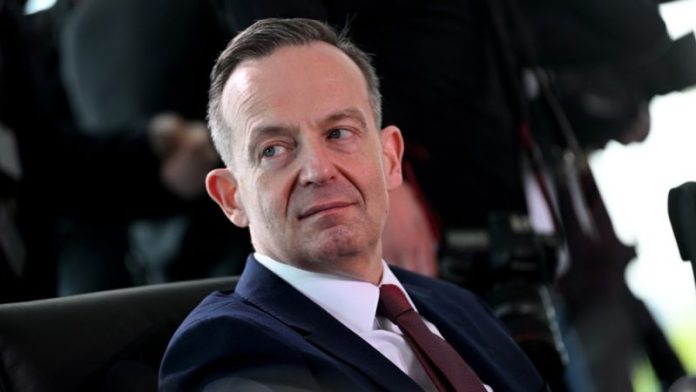German Chancellor Scholz criticised Federal Minister for Transport and Digital Infrastructure Volker Wissing for his statement of intent regarding data sharing with China, German media reported.
Criticism of data sharing agreement with China
On Wednesday, Wissing signed a declaration of intent on “dialogue on cross-border data traffic” with Zhuang Rongwen, director of the Cyberspace Administration of China, in Beijing, according to Tagesspiegel. The declaration is thus the next step after the co-operation agreement with China on autonomous driving signed in April in the presence of the Chancellor, his ministry explained.
Chancellor Olaf Scholz (SPD) strongly criticised Volker Wissing (FDP) for the transport minister’s handling of the data transfer agreement with China. According to Scholz, there is a “principle of harmonising things with each other” because the federal government has a strategy towards China, “and as a government we always act in accordance with our general principles.”
Wissing’s actions came under criticism from other politicians in the traffic light coalition. Michael Roth, a foreign SPD politician, wrote on X that “uncoordinated actions by the federal transport ministry that contradict China’s strategy should have consequences”. Jens Zimmermann, a spokesman for the SPD’s parliamentary digital policy group, told Handelsblatt newspaper on Thursday:
His unilateral actions make people shake their heads not only in Parliament but also among our closest allies.
Tobias Bacherle (Greens), chairman of the digital affairs committee, told the newspaper that the issue of data export rules was itself “extremely important”. He stated:
We simply cannot afford to give up on good coordination. Because such single-minded efforts usually only end up helping others: in this case, China’s interests.
Criticism of Wissing’s approach emanated even from within his own party. The FDP has sometimes criticised the timing behind closed doors as the EU is currently negotiating with China on special EU tariffs on Chinese electric vehicle (EVs). Hyde Jensen, deputy chairman of the FDP parliamentary group and an expert on China, said:
The negotiating mandate of the German side can only be sustainably strong if the position taken ensures broad federal political support for further discussions.
Wissing’s representative denied the allegations
On Friday, a Wissing spokesman denied the allegations, saying the ministry had informed people about the China trip and related intentions “at an early stage”. The first draft of the declaration of intent came out in mid-May. The purpose of the statement is to enter into a dialogue on legal issues related to data sharing – the spokesperson stressed that this does not explicitly imply a specific agreement. “Establishing professional dialogues is in line with the federal government’s strategy in China.”
The Wissing spokesperson also emphasised the German economy had “clearly welcomed” the ministry’s initiative. In view of the intensive economic activity in China, German companies expect to continue to secure data transfers with China and clarify issues of legal interpretation. The negotiation channel with the Chinese side is significant also because the companies have previously experienced difficulties in entering into exchanges with the Chinese authorities.
The Foreign Ministry as well as the Federal Ministry of Economics and the Federal Ministry of the Interior have expressed extreme irritation at the lack of prior consultation, according to government circles. Wissing’s personalised approach to China is likely to be a topic of discussion in the federal government next Tuesday. The secretaries of state of all affected companies will then meet for another round of talks on China.
Opposition criticises Scholz and Wissing
The opposition in the Bundestag sees a fundamental flaw in the federal government’s China policy. CDU foreign policy officer Norbert Rettgen said:
One is called Olaf Scholz , he pursues a policy towards China as if we had never experienced energy dependence on Russia. The other problem is Volker Wissing, who does not think about society as a whole, but represents the lobbying interests of some big companies towards China.
Federal Interior Minister Nancy Fäser (SPD), Federal Foreign Minister Annalena Berbock and Federal Economy Minister Robert Habeck (both Greens) are in favour of excluding Chinese technology from the German mobile network as much as possible for security reasons. Transport Minister Wissing opposed this; at length.
